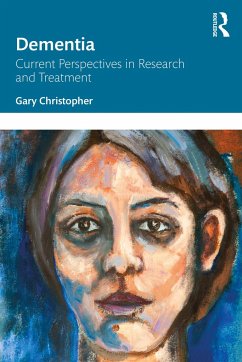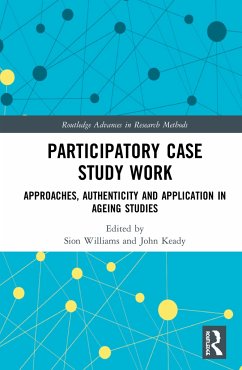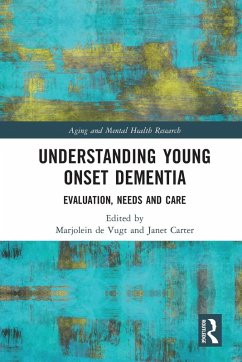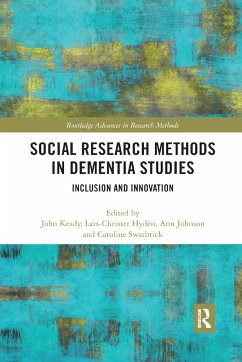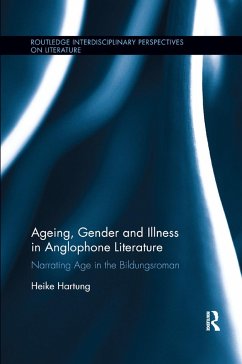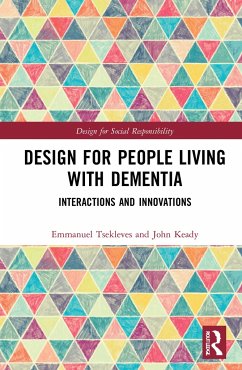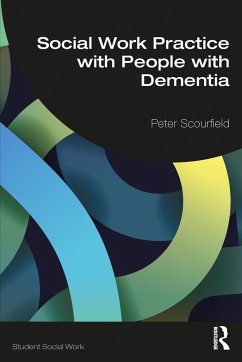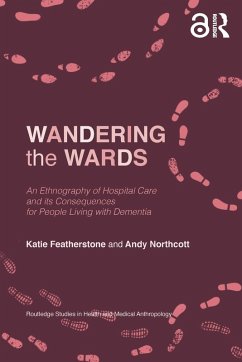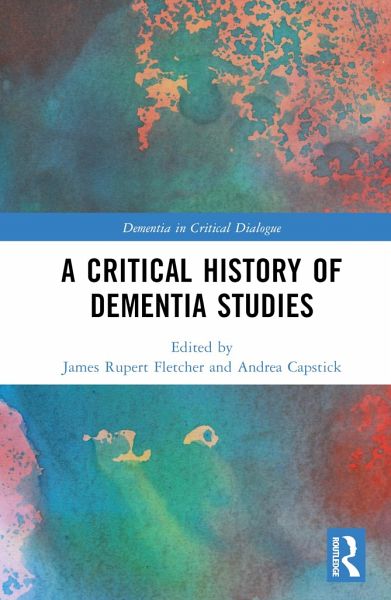
A Critical History of Dementia Studies
Versandkostenfrei!
Versandfertig in 6-10 Tagen
154,99 €
inkl. MwSt.

PAYBACK Punkte
77 °P sammeln!
This book offers the first ever critical history of dementia studies.Focusing on the emergence of dementia studies as a discrete area of academic interest in the late 20th and early 21st centuries, it draws on critical theory to interrogate the very notion of dementia studies as an entity, shedding light on the affinities and contradictions that characterise the field. Drawing together a collection of internationally renowned experts in a variety of fields, including people with dementia, this volume includes perspectives from education, the arts, human rights and much more. This critical hist...
This book offers the first ever critical history of dementia studies.
Focusing on the emergence of dementia studies as a discrete area of academic interest in the late 20th and early 21st centuries, it draws on critical theory to interrogate the very notion of dementia studies as an entity, shedding light on the affinities and contradictions that characterise the field. Drawing together a collection of internationally renowned experts in a variety of fields, including people with dementia, this volume includes perspectives from education, the arts, human rights and much more. This critical history sets out the shared intellectual space of 'dementia studies', from which non-medical dementia research can progress.
The book is intended for researchers, academics and students of dementia studies, social gerontology, disability, chronic illness, health and social care. It will also appeal to activists and practitioners engaged in social work and caregiving involved in dementia research.
Focusing on the emergence of dementia studies as a discrete area of academic interest in the late 20th and early 21st centuries, it draws on critical theory to interrogate the very notion of dementia studies as an entity, shedding light on the affinities and contradictions that characterise the field. Drawing together a collection of internationally renowned experts in a variety of fields, including people with dementia, this volume includes perspectives from education, the arts, human rights and much more. This critical history sets out the shared intellectual space of 'dementia studies', from which non-medical dementia research can progress.
The book is intended for researchers, academics and students of dementia studies, social gerontology, disability, chronic illness, health and social care. It will also appeal to activists and practitioners engaged in social work and caregiving involved in dementia research.





